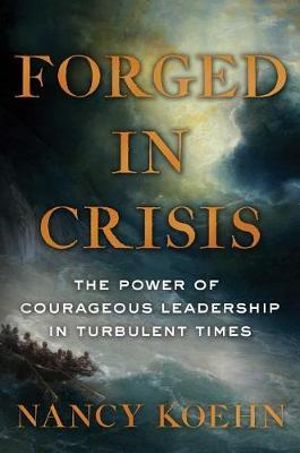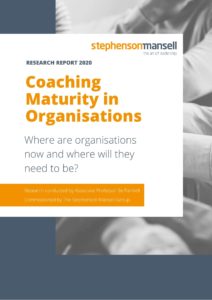How to Seize Back Control in an Existential Crisis
The Art of Leadership Newsletter
How to Seize Back Control in an Existential Crisis

This worldwide Coronavirus crisis is posing a huge existential crisis for us as human beings.
We all like to control our own lives so that it has purpose, meaning and a sense of value for ourselves and for our primary relationships: our families and friends, our co-workers and teammates. Right now, this sense of personal control is under threat, from intervening forces that we cannot directly influence.
The crisis, which is affecting everyone around the world, reminds me of the sudden shock we experienced when the Global Financial Crisis (GFC) occurred in September 2008. Whilst not threatening our human survival experience, I recall similar patterns in reaction and response to the threat. There was panic, irrational behaviour driven by fear and anxiety, and a sense of disbelief that the big banks and corporations “could let this happen to us”.
We are now experiencing a similar overload of information which is so overwhelming and diverse that it is creating extraordinary pressure on anyone who is in a leadership role irrespective of geography, industry or sector.
So what’s different?
What’s different is that the GFC was sudden while the Coronavirus situation is emergent. As a result, the magnitude of the decisions that leaders now have to make — and the scope and significance of these decisions for the future – is greater. Only last week I had a conversation with a CEO who is managing a workforce that spans across Australia, Asia and the US. The question that this CEO is grappling with is a familiar one: when to impose a travel ban and for how long? The problem is that no one knows how the Coronavirus will play out, nor how long it might take to get it under control.
This and myriad other decisions that have to be made are complex, ambiguous and uncertain. In these circumstances, leaders need to have a strong intuition and instinct for leading, coupled within a framework of good governance and decision-making.
It’s also useful for leaders to look at this situation from the lens of human psychology. Understanding how humans respond to these pressure cooker conditions, can help leaders make more informed decisions.
For example, when people feel a sense of loss of personal control and the ability to influence or make changes, the natural psychological defence mechanism is to go into Fight-or-Flight mode to defend the possible and projected reality of the situation.
Personality theory which contributes to decision making and decision style, (for example being a risk taker versus-non risk taker), also plays a part in response when faced with crisis.
These response reactions will affect both personal and organisational levels of anxiety, either enabling positive drive and the search for possibilities, or negative thinking and onset of depression and spiraling anxiety. There are examples of this phenomenon playing out with those directly affected by the recent Australian bush fires, with many examples of people dealing with the reality of what they have lost and discovering the persistence and resilience to rebuild their lives.
So, what do people need now and in the next few weeks and how can leaders of all levels encourage rational and responsible behaviour at a time when our very existence is threatened?
My belief is we need leaders to:
1. Provide strong and calm reassurance that there is a plan for every scenario and that these plans will be adapted on a daily basis when new information and threats arrive.
2. Give clear, concise direction. As humans, we want to know what to do and want to be led through the crisis calmly, carefully and with empathy. Shane Fitzsimmons, Commissioner of the NSWRFS, afforded a wonderful role model during the recent bush fires.
3. Put the care and health of employees first and foremost, and at the heart of any leadership decisions making. The Clayton Utz leadership team recently lead by example with the closure of their offices amid the coronavirus outbreak. Their quick and selfless response allowed them to make the right decisions.
4. Communicate prolifically and think through different options that allow people to stay connected, such as via apps, email and video conferencing.
The Chinese word for “crisis” is frequently sighted as being composed of two characters indicating “danger” and “opportunity”. At this time of danger and uncertainty, we have a unique opportunity presented by the Covid-19 crisis to demonstrate what is needed above all else – true leadership.
About the Author:
 Virginia Mansell, is Founding Partner of Stephenson Mansell Group. Virginia is an author, expert and thought leader in executive coaching, mentoring and leadership.
Virginia Mansell, is Founding Partner of Stephenson Mansell Group. Virginia is an author, expert and thought leader in executive coaching, mentoring and leadership.
In addition to her own experience as a business leader, Virginia brings to her role more than 30 years in human resource management, psychotherapy and executive coaching as an organisational and clinical psychologist.
What’s On
RESEARCH REPORT RELEASED:
“Coaching Maturity in Organisations – Where are organisations now and where will they need to be?”
Last week SMG released the findings of a major research project we commissioned to investigate how coaching can be used to address emerging business challenges and tangibly shift performance, as well as to conceptualise what the future of coaching would need to look like for leaders and their organisations to thrive in this new world.
To coincide with the release of this research, we held a launch event for our clients to give them an exclusive first look at the outcomes.
We would be delighted to share our research with you. Please reach out via email to info@smgrp.com.au for further information.
JUST ANNOUNCED
 Lunch & Learn – Webinar with Virginia Mansell: Leading in difficult times
Lunch & Learn – Webinar with Virginia Mansell: Leading in difficult times
Join Founding Partner, Virginia Mansell, for a free webinar as she explores practical tools and approaches to deal with anxiety and leadership during difficult times.
Virginia will outline the psychological factors that cause fear and uncertainty for leaders during a crisis, and will detail useful ways leaders can manage both their own and their teams reactions.
ONLINE: Monday, 23rd March 2020, 12.00pm – 1.00pm
Become your business storyteller –
Executive Presence and Impact Workshop with Peter Kingston
Peter Kingston’s Executive Presence and Impact Program positions you as a storyteller. Learn how to engage with your audience, to connect with impact and, to ensure that your pitch, presentation or presence is unforgettable.
Peter’s ability to engage with his audience and personally encourage participants to step out of their comfort zone and challenge the way they present themselves, makes this a program not-to-be-missed.
BRISBANE: 2nd April 2020
MELBOURNE: 28th May 2020
SYDNEY: 25th June 2020
What’s Trending in Leadership

McKinsey & Company share their insights on COVID-19 and the implications this evolving situation has for business leaders.
SMG Recommends
In need of some inspiration…
Amantha Imber hosts the number one ranking business podcast “How I Work”, where she interviews some of the world’s leading innovators about their habits, rituals and strategies for structuring their day. Every episode contains practical tips and insights on how the world’s most successful people manage their day.
https://www.amanthaimber.com/podcast/

Forged in Crisis: The Power of Courageous Leadership in Turbulent Times, by Nancy Koehn
Business historian Nancy Koehn details the leadership skills of five people forged in crisis: Abraham Lincoln, Ernest Shackleton, Frederick Douglass, Dietrich Bonhoeffer, and Rachel Carson.











